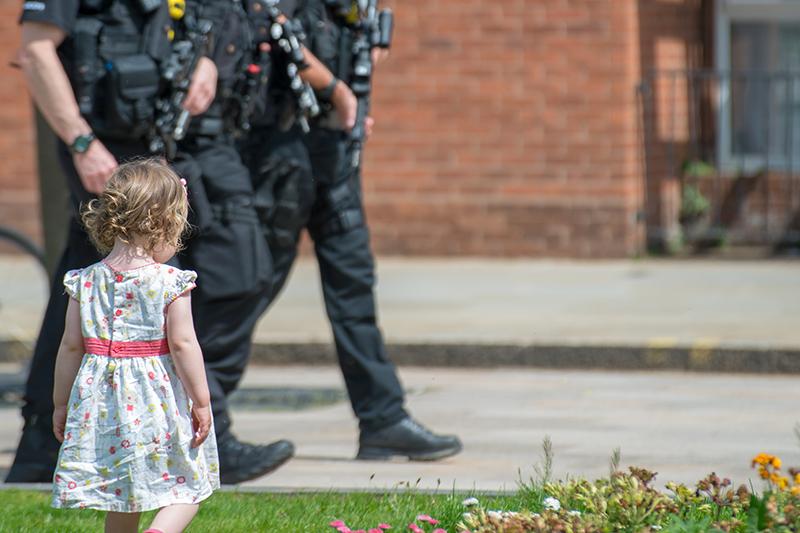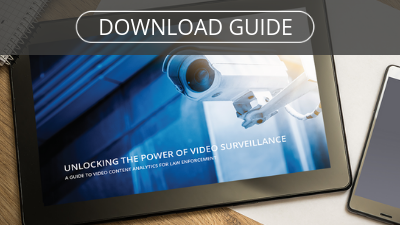How Police in Small Cities Can Overcome Big Challenges

Small town police departments face many of the same challenges as their big city counterparts, but there’s one big difference between the two: Small town law enforcement typically only has a fraction of the resources — and manpower — as the big city departments do. It can make policing a real challenge in a small city, especially if there’s only one or two officers on duty at a time. For this reason, it’s important for smaller police departments to uncover ways to work smarter, and not necessarily harder.
A GUIDE FOR LAW ENFORCEMENT: UNLOCKING THE POWER OF VIDEO SURVEILLANCE
Here’s a look at a trio of technologies that can help:
Video Content Analytics
Video content analytics (VCA) technology integrates with traditional security surveillance systems to help police officers accelerate the processing of important information, something that’s especially crucial when staff is limited. With VCA, officers aren’t just able to proactively police areas or people of interest, but the technology can also help streamline investigations in small cities. Video analysis systems allow officers to hone in on certain details about people and objects in video, like color, gender, vehicle type and more, to pinpoint crucial evidence from several hours — or even days — worth of video. Video review can be a full-time job in and of itself, so leveraging VCA technology in a small town can help increase the efficiency of law enforcement manpower, so actionable insight and evidence can be located faster, investigations can be accelerated and cases closed.
Mobile Technology
Despite tablets and smart devices playing such an important role in the lives of many working professionals today, many small city police departments still stick to the traditional paperwork filing system — that being from an office desk. Tablets allow law enforcement to file paperwork from literally anywhere in the world, thereby helping to streamline the efficiency of much of the bureaucratic efforts that come with police work. The less time spent at their desks means officers have more time out on patrol actively policing and keeping the public safe. Even small-town departments can invest in the technology to make this task easier and more convenient. Moving to mobile filing systems can also make it simpler to add digital data sources to reports — from Video Content Analytic data to social media evidence and beyond.
License Plate Recognition
Police can learn a lot from those letters and numbers on a vehicle’s license plate, such as whether the vehicle is reported stolen or if there’s a warrant out for the owner’s arrest. Many small police departments still enter license plate data the old-fashioned way — by manually entry into an on-board computer. But new data-driven technology can process license plates automatically, and relay critical information to officers, if further action is necessary. When required, police can respond immediately, apprehending the suspect or mitigating threats faster and more efficiently.
The goal of both big and small municipal police departments is the same: a safe city. Low crime makes any place more comfortable for its current residents, and it makes it more attractive to potential residents. But with smaller budgets and less manpower, small city law enforcement often has to get creative to ensure the needs of the public are met. Many of today’s advanced technologies are more than worth the return on the initial investment.
Signup to receive a monthly blog digest.
